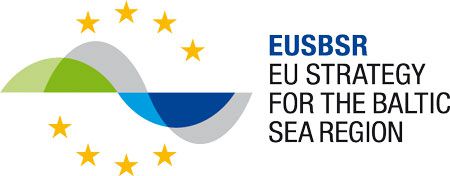
Published 25 Oct, 2016
Invitation: EUSBSR flagships synergising on TEN-T corridors
Date: Wednesday, 9 November, 10:40 – 12:00
Place: The Brewery Conference Centre, Torkel Knutssonsgatan 2, 11825 Stockholm, Sweden
The session is jointly organised by the PAC Transport and the three flagship projects TENTacle, NSB CoRe and Scandria2Act, E co-financed by the Interreg Baltic Sea Region Programme.
The panel discussion is embedded in the overall programme of the 7th Forum of the EU Strategy for the Baltic Sea region: “One Region, One Future – Vision 2030 for the Baltic Sea Region”, taking place from 8th – 9th November 2016.
Further information to the 7th Forum programme etc.: http://www.strategyforum2016.eu/
The allied Interreg Baltic Sea Region flagship projects of NSB CoRe, Scandria2 Act and TENTacle strongly believe that the implementation of the TEN-T core network corridors crossing the Baltic Sea Region, namely: Scandinavian-Mediterranean, North Sea-Baltic and Baltic-Adriatic, has a large but untapped potential to stimulate positive effects. These, however, should not be restricted to just the transport sector and need to diffuse beyond the immediate geographical areas they cross.
A seminar, scheduled in the programme of the EUSBSR Strategic Forum, will offer more insights into how the recently kicked-off projects reflect on that, if they can already give any preliminary recommendations to make the best out of the corridor implementation and how they intend to joint forces under the revitalised framework of Policy Area Transport in the EUSBSR.
The Coordination Group for PA Transport adopted last spring a revised and updated Action Plan, which is expected to be finally approved during this autumn. The ambition is to support the European Coordinators in their effort to efficiently implement the corridors and to create an added value through complementary measures. “The revised Action Plan have been adapted to the new opportunities and PA Transport is striving for becoming a strong platform for the development of an economically, socially and environmentally sustainable transport system in the Baltic Sea Region“, says Thomas Erlandson, Coordinator for Policy Area Transport
The three projects share their views on the collaboration prospects.
Chief adviser Olli Keinänen from the NSB CoRe project explains: “In the field of passenger transport, NSB CoRe promotes cross-border commuting growth corridors, such as Tallinn-Helsinki-Tampere, Riga-Tallinn and Berlin-Warsaw. Transnational services for commuters improve the accessibility of the urban nodes along the corridor and enhance regional development over state borders. On the more local level, the urban nodes and their access routes form an efficient interconnected system of commuting services. I believe our three cooperating projects with their complementary perspectives are able to effectively work in bridging transport development strategies between the core network, the urban nodes and the peripheral areas, especially in the north”.
“We have a long tradition of working together”, says Wiktor Szydarowski, leading the TENTacle project. “Starting from spontaneous contacts many years ago, we have put together our individual competences and geographies to look wide at the sustainable development and territorial cohesion of the whole Baltic Sea Region. Standing strong as an alliance of projects, we managed to well influence the course of transport developments in our macroregion. This is our goal right also now, to jointly help generate regional growth impulses out of the core network corridors.”
“One important objective is to apply multi-level governance approach for the urban nodes along the core network corridors by combining existing structures like the Corridor Forums, the working group of regions, the EUSBSR Transport PACs and regional initiatives”, Horst Sauer from the Scandria2 Act project describes. “These are crucial steps for a better involvement of regional stakeholders, especially SMEs or the civil society. This is a precondition for a successful integration of urban nodes in the TEN-T core network. Therefore, an improvement of the multi-level communication is crucial. Hereby our three projects function as a laboratory for the Baltic Sea Region.”
We would like to see the session as an opportunity – say the three project managers – to discuss wider socio-economic benefits in the corridor implementation. This requires a good understanding of transport and spatial development gains by our wide stakeholder communities, so that they are eager to contribute to the corridor development. The role of flagship projects under PA Transport is to offer platforms, guidance and specific ideas.
We are going to convey main messages from the session - continue the managers – to the panellists discussing the high-level policy aspects of the core network corridors in the session later that day on the programme’s agenda.
Tweet